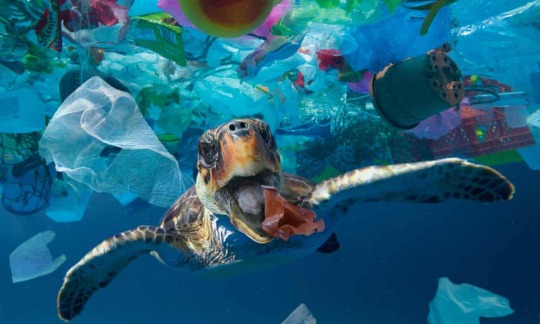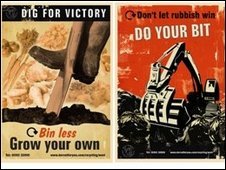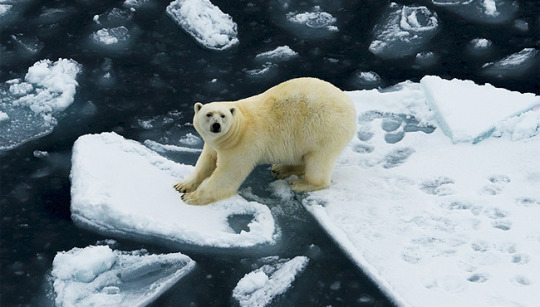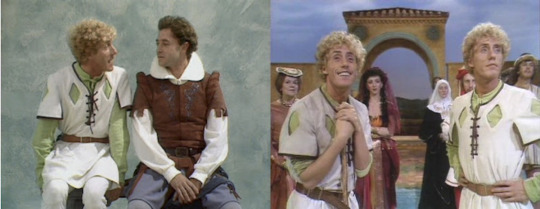Don't wanna be here? Send us removal request.
Text
Plastics: What’s the problem?
Is plastic as harmful as they say?
Plastic is well known to be one of the most harmful materials to use with regards to the environment, having been in wide circulation since the 1940s and are a cheap material which can be used for a variety of different products: toys, containers, food packaging and much more. So why is it not only still being used but is still so widely manufactured? The most recent study done by the British government states, ‘The scale of plastic in the UK. In the UK it is estimated that five million tonnes of plastic is used every year, nearly half of which is packaging.’[1] One of the major problems with plastic is that it takes hundreds of years to decompose and if burnt, releases even more harmful toxins into the environment, as a non-reusable material, plastic has to be recycled in a certain way. Unfortunately, a lot of countries don’t have the ability to provide proper facilities to dispose of plastic due to lack of money in their own governments and therefore a lot of the plastic used, goes into the sea. Plastic has widely become one of the most damaging materials to sea wildlife, littering their habitat and killing or harming an alarming amount of animals. ‘95% of fulmar seabirds that wash ashore dead in the North Sea have plastic in their guts.’[2] Plastics material harm wildlife not only through ingestion, but also produces toxic chemicals when being made and when being wasted, more widely known as green-house gasses. Greenhouse gasses are known to be a factor in destroying the ozone layer and being a leading cause of climate change and to a rise in sea levels which if left unchecked would lead an apocalyptic outcome.

How is recycling beneficial to the environment?
Recycling is one of the leading methods which our government uses in order to dispose of plastic waste, it also has may benefits helping the environment for many reasons; when properly disposed, plastic shouldn’t produce the harmful chemicals, less waste is thrown into the sea, meaning less harm to the wildlife and plastics in some cases can be reused. So why does everyone not recycle? Recycling comes down to being able to provide the correct facilities in which to do so, many governments around the world simply don’t have funding to provide such services. However, in Britain we are lucky enough to have these provided for us and to have the recycling plants around the UK, yet not everyone in the UK recycles, one study made by the eco-friendly packaging brand Hydropac found that, ‘Only half of UK businesses offer recycling facilities, however, with many employees either only given the option of a general waste bin or taking their recycling home to do there.’[3] With this statistic in mind, is it the job of the government, businesses or the individual to make sure plastics are recycled properly? Most of the plastic waste comes from wrapping used to package a variety consumable goods, used for both fresh and long-life foods and a majority of the bottled beverages. Even though plastic has been proved to be a harmful method of packaging, there hasn’t been a cheaper option invented for businesses to use on such a global scale. However, its not just businesses who struggle with recycling, ‘Barely half (54%) of rigid plastics (e.g. drinks and detergent bottles, supermarket trays) and virtually none (4%) of consumer films (e.g. plastic bags, pet food sachets) are collected from households.’[4] With this in mind, the question previously asked, of whether this is a government or a public issue needs further consideration.
Is this a public or a government issue?
Even though the general public pay taxes in order for out government to provide the proper recycling facilities, there is still a vast number of households within the UK which fail to recycle properly, leading to an increase in unprocessed plastic waste. With so many of the British public neglecting recycling today, it can be easily thought of as an issue which the government should tackle since they are the ones which provide such services. Today, there is more information about the effects that plastic has on the environment and also a greater understanding and acknowledgement of climate change, why are so many people neglecting recycling? And what is the government doing about it? A study states, ‘The responsibility for UK household waste collections lies with Local Authorities, mandated to operate multi-bin collection systems (EPA, 1990). Conventionally, each household pre-sorts their waste into differently coloured bags or bins, with each colour collected either weekly or on alternate weeks. However, there is no national government co-ordination.’[5]

From this study it is suggested that the fault should lie with the government, household owners in the UK know, the recycling system is split into different bins, this has been found to confuse the public as many of them don’t recycle in fear of getting it wrong. Across the UK each local authority also has different colours to represent the different materials which go into each bin yet each different county in the UK has a different system of recycling, there seems to be no national average or seemingly any communication between counties, no wonder the majority of the households in Britain struggle to recycle, not only is the system too complicated but there is also a clear lack of proper information given out by the government.
Why do the older generations recycle more than the youth today?
The eco-friendly packaging company Hyrdropac also found that there was a generational gap in who recycles and who doesn’t, their study found, ‘Whilst eco-awareness is constantly on the rise, 90% of people who worry about recycling most are aged over 55.’[6] Why is this? Is it because of the great British tradition from World War II? Where households were encouraged to reuse and recycle their waste and materials to help the war effort.

Or is it something else entirely, with the invention of the internet creating a massive platform for organisations such as PETA and Greenpeace, there is more acknowledgement of sustainability than the previous generations ever had access to. The millennials and Generation Z are now more aware of sustainable materials and it has been shown that more of these younger generations are becoming conscious of the goods they buy, market boom of metal straws, foregoing fast fashion brands in favour for charity shops or vintage clothing apps such as Depop, or even buying food out of plastic packaging in order to be more environmentally friendly. However, there is more than one study to suggest that even though the younger generations are definitely more conscious to the effort to improve the environment and combat climate change, they still fail to recycle, Nestor goes on to give an explanation to this seemingly paradoxical behaviour, ‘Millennials react to cause-based marketing where through selective purchasing they, in effect, pay others to act responsively for them. Using the power of their wallets to support the environmental initiatives of others is status quo. Taking direct action is not.’[7]
If we neglect recycling, how harmful will the results be?
With the effects of plastics on the environment being explained, what will happen if we carry on neglecting recycling and other environmentally conscious behaviours? Wildlife enthusiasts such as David Attenborough and activists such as Greta Thunberg emphasise the ‘carbon budget’ which we have left before the effects of climate change will be so great that there is nothing any government could do, ‘As the globe warms, the permafrost is predicted to thaw, releasing methane, a powerful greenhouse gas, into the atmosphere, thus entering a positive feedback loop in which more permafrost then thaws, leading to a tipping point and runaway global warming.’[8]

This rise in temperature has already begun to melt away the polar ice caps, causing the destruction of habitats for a variety of different animals, however if governments across the world fail to lower their carbon emissions and stop the global temperature from rising about 1.5°C, it is suggested that we only have around 12 years to solve this, in the words of Thunberg herself, ‘crisis’.[9] If we fail to change our ways and sea levels do rise further, catastrophe would ensue, floods would increase to an overwhelming degree, engulfing a vast amount of land. England being the tiny island that it is and surrounded by ocean; is it us, the British public, who should be worried the most?
How is this represented in literature?
My main focus has been on plastic waste and how this effects the environment, one representation we can find in literature which links to this focus would be ‘Doggerland’, a novel written by Ben Smith. In this novel we see two characters, Greil, an old man and Jem, the young boy, who are cast out on an isolated wind farm in the middle of the North Sea. This links to the subjects I have brought up previously, not only because this novel focuses on a dystopian future in which the plastic pollution has clearly caused damage to the landscape, ‘Other days, shoals of plastic bags and bottles would rise from the depths like bulbous light-seeking creatures.’[10] But also focuses on the generational gap between Greil and Jem, Greil more inclined to spend his days fishing for the plastic debris, in search for treasure, whereas Jem yearns for more, a life outside the windfarm, eventually escaping in a boat. The novel’s location is also something which can be taken into account here as the North Sea and especially the area of ‘Doggerland’ is situated near English shores, bringing this dystopian future even closer to home.
[1] House of Commons Library. (2022). Plastic Waste. [online] Available at: https://commonslibrary.parliament.uk/research-briefings/cbp8515/?doing_wp_cron=1591707255.8118329048156738281250.
[2] Liu, N. (2020). The Effects of Plastic Pollution on the Environment. [online] STEM W/O Boundaries. Available at: https://www.stemwithoutboundaries.org/post/the-effects-of-plastic-pollution-on-the-environment.
[3] hydropac (2019). How many people actually recycle properly? | Eco Awareness. [online] Hydropac. Available at: https://hydropac.co.uk/how-many-people-actually-recycle-properly/.
[4] Burgess, M., Holmes, H., Sharmina, M. & Shaver, M.P. 2021, "The future of UK plastics recycling: One Bin to Rule Them All", Resources, conservation and recycling, vol. 164. pp.1
[5] Burgess, M., Holmes, H., Sharmina, M. & Shaver, M.P. 2021, "The future of UK plastics recycling: One Bin to Rule Them All", Resources, conservation and recycling, vol. 164. pp.2
[6] hydropac (2019). How many people actually recycle properly? | Eco Awareness. [online] Hydropac. Available at: https://hydropac.co.uk/how-many-people-actually-recycle-properly/.
[7] Nestor, M. 2016, Brexit Millennials May Teach Us Why Recycling Awareness Doesn't Result In the Act of Recycling, Informa, New York. pp2
[8] Attenborough, D., with J. Hughes (2020). A Life on our Planet: My Witness Statement and a Vision for the Future. London: Penguin.
[9] Skilbeck, A. ‘A thin net over an abyss’: Greta Thunberg and the importance of words in addressing the climate crisis. Journal of Philosophy of Education 54.4: 960-74. Available online: http://dx.doi.org/10.1111/1467-9752.12485
[10] Smith, B. and Mollema, K. (2019). Doggerland. Amsterdam: Uitgeverij Atlas Contact, April. pp5
Commentary
When choosing a topic which I wanted to focus on for this project, I chose one which I personally had the most connection to, as a vegan I understand the need for more sustainable products in order to combat the drastic effects that climate change has had on out environment, mostly from our own disregard of more sustainable ways of living for the cheaper options which can be harmful to the environment. Originally, I wanted to focus on the effect the meat and dairy industry had on
the environment, but when accumulating my research, I found that the over use of plastic was far more alarming and dangerous than I had initially expected it to be, the toxic greenhouse gasses which pollute both the water and the air, causing a rise in the global temperature and a leading cause behind climate change, I believed this to be a more interesting subject and was intrigued to find out more about how the use of plastic effected the environment. In choosing this subject I also needed to link this to at least one text studied in the module and subsequently Ben Smith’s ‘Doggerland' and the topic which I wished to investigate further had many similarities, both in terms of location and in terms of plastic pollution being at the forefront of this plot. I also was interested in why many studies which I had read, said that even though younger generations were more aware of the effects of climate change, they still failed to recycle properly, a question which I pose in my final project.
In choosing a digital platform on which my final project would be submitted to, I found that writing in a blog form would work best with the amount of research that I have carried out through writing about the topic of sustainability, even more so in focusing on the specific subjects of plastic and its effect on the environment. I decided to post this to the Tumblr website, I have previously used this digital platform for other assignments, I have found that this platform allows for a greater amount of information to be included on each post and that this platform adapts well with the addition of pictures and also the references which were essential in providing statistics and further information on this topic. Tumblr is often used for blog posts and having been familiarised with its layout, as I previously used Tumblr on many occasions even before coming to university and using the platform for other modules, I felt confident in my ability to provide both an informative and appealing piece, one which could be understood by a non-academic audience in my final project.
0 notes
Text
Volpone and Mosco as ‘overreachers’
Ben Johnson’s Jacobean era comedy, ‘Volpone or The Fox’, was written approximately around the time of 1605-1606. Johnson wished to focus on the aspects of his contemporary culture which he deemed to be detrimental to society, the play revolves around two characters Volpone, a man with a great amount of wealth and Mosca, his loyal servant, who, through cunning means, form a plot to outwit three other characters, Voltore, Corbaccio and Corvino. The plot is based around the lie that Volpone is dying, each character believing that they will be named sole heir to Volpone’s great fortune, giving gifts in hopes that they will obtain Volpone’s favour, gifts that they will then reacquire once Volpone dies.

https://covers.openlibrary.org/b/id/5612920-L.jpg
Johnson sets his play in Venice, a wealthy state profiting from seaside trade and home to some of the wealthiest and most influential families in Europe during the 17th century, many other playwrights such as Shakespeare or John Webster used Italy as the set location of their play due to the similarities is shared with England, in doing so they were able to criticise parts of their society without fear of persecution from the monarchy. During the time of Johnson’s writing, societal values began to focus more on financial wealth and social mobility as the introduction of the free market came into full bloom, one critic states ‘the period when market capitalism securely established its future dominance in London, at the eventually terminal expense of the feudal structure of English society.’[1]The merchants who gained profits from this boom in trade became wealthier than ever before, as such roots as the silk road had been opened since the 16thcentury, including expensive commodities such as silk and precious metals. The central character in Johnson’s play, Volpone, seems to be an epitome of this merchant class who profited during this period of increasing wealth through commodification, all of the characters within the play seem obsessed with personal gain and the accumulation of their own wealth.
In looking at this play, we see the two principal characters, Volpone and Mosca, at the heart of the plot which revolves around their deceit. Johnson reveals these two characters as being ‘overreachers’ from the first scene; the Oxford dictionary defines the word ‘overreacher’ as to get the better of by cunning or wit, a trait which arguably both Volpone and Mosca share. Johnson was heavily influenced by some of the philosophers and writers of the classical period, with particular relevance to Aesop’s fables, more specifically in regards to a fable in which a fox pretends to be dead in order to capture birds of prey. We see here that each character relates to this fable; Corvino, the crow, Corbaccio, the raven, and Voltore meaning vulture, are all carrion birds and all are tricked by Volpone, the fox. As the play revolves around each character’s greed, Volpone and Mosca feed on this, the sycophantic behaviour of Voltore, Corbaccio and Corvino, arguably allows the feigned sickness of Volpone to be so easily believed.

https://www.telegraph.co.uk/multimedia/archive/03369/Volpone_3_performe_3369621b.jpg
Taking inspiration from Aesop’s fables, Johnson wished to create a cautionary tale about the downfall of those who succumb to the temptations of wealth, which the majority of the characters he depicts in his play are seen to be presented as to the audience, ‘All of the principal characters in the play pride themselves on their ability to manipulate others, and their vanity on this point sometimes leads them into courses of action inimical to their own best interests.’[2]Out of all these characters who pride themselves on deceiving others in order to benefit their own gain, it seems that Volpone and Mosca are at the centre of the trickery that we see in this play. The plot which we see in the beginning of the play, the feigned illness of Volpone, begins to become more intricate as the play unfolds, we see that Volpone and Mosca, in getting away with their initial plot, now seek to create more schemes. The conclusion that Volpone is an ‘overreacher’ can be seen in how he presents himself to the other characters in the play, he seems to rarely show his true identity to anyone other than Mosca, ‘Volpone it is the pleasure of deception through self-transformation which appeals.’[3] As if he were putting on a play or act which often involves him donning some form of costume, an example of this is when he pretends to be Scoto Mantua, an infamous mountbank, in order to glimpse at Corvino’s wife, Celia. ‘Volpone imagines himself to be an artist and master who will achieve a self-created, fully autonomous identity through his theatrical machinations,’[4]In this way, we see that Johnson is making a clear correlation between the lack of an identity and the ability to deceive others.
The inclusion of characters such as Celia and Bonario, can arguably be seen as emphasising the overreaching characteristics of the other characters in the play, ‘Bonario and Celia, sometimes condemned by critics as flat and uninteresting, fulfill important functions in Volpone: their behavior provides a standard by which the venality of the other characters may be measured,’[5]Johnson uses religious language throughout the play to exhibit this difference. In the beginning of the play when we first hear of Volpone’s overreaching scheme, whilst in conversation with Mosca, he states, ‘Riches, the dumb god, that giv’st all men tongues, That canst do nought, and yet mak’st men do all things; The price of souls; even hell, with thee to boot, Is made worth heaven.’[6](Act I, i) We see here that Volpone uses words such as God and heaven in relation to the value and power which money and the prospect of wealth has over mankind, this proves to be a form of foreshadowing written by Johnson which would then predict the events which will follow during the play, involving Volpone’s plot and the hoodwinking of the three characters Voltore, Corbaccio and Corvino. We can then compare this with Celia’s words throughout the play, more specifically those in relation to the scene between herself and Volpone, in which Volpone attempts to seduce her, ‘If you have touch of holy saints: or heaven- Do me the grace to let me scape: - if not, Be bountiful and kill me.’ 5 (Act III,vii)

https://i.pinimg.com/originals/de/2b/cf/de2bcf410128da103a7750231884f889.jpg
The stark contrast in the use of religious language between the characters of Volpone and Celia, I believe were a conscious choice on the part of Johnson, as he wished to intensify the difference between the characters which possessed these overreaching qualities, ‘these references to divine intervention come from either Bonario or Celia, and this is thoroughly appropriate, for they are the only characters in the play who consistently evidence any awareness of the heavens and the values which they represent.’[7]and the ones such as Celia, who possessed more worthy qualities such as piety and honour. In the final act of the play there is a sense of poetic justice in Johnson’s writing, as Volpone and Mosca are both punished for their crimes brought about by their overreaching characteristics and sentenced by the Venetian court, bringing the sequence of fraudulent events comes to an end.
[1] McEvoy, S. (2008). ‘Volpone or The Fox (1605-6)’. Ben Johnson, Renaissance Dramatist: Edinburugh University Press, pp. 54 [2] Broude, R. (1980). ‘Volpone and the Triumph of Truth: Some Antecedents and Analogues of the Main Plot in "Volpone’. Studies in Philology: University of North Carolina Press,77 (3), pp.224 [3] McEvoy, S. (2008). ‘Volpone or The Fox (1605-6)’. Ben Johnson, Renaissance Dramatist: Edinburugh University Press, pp.62 [4] Marchitell, H. (1991). ‘Desire and Domination in Volpone’. Studies in English Literature, 1500-1900: Rice University, 31 (2), pp.291 [5] Broude, R. (1980). ‘Volpone and the Triumph of Truth: Some Antecedents and Analogues of the Main Plot in "Volpone’. Studies in Philology: University of North Carolina Press, 77 (3), pp.245 [6] Jonson, B., 1739. Volpone. London: Printed for D. Midwinter, J. and P. Knapton, H. Knaplock, A. Ward, A. Bettesworth and C. [7] Broude, R. (1980). ‘Volpone and the Triumph of Truth: Some Antecedents and Analogues of the Main Plot in "Volpone’. Studies in Philology: University of North Carolina Press, 77 (3), pp.242
0 notes
Text
'The Comedy of Errors': Adaptations throughout the Ages
Shakespeare wrote ‘The Comedy of Errors’ around 1594 and based his play heavily on the work of Plautus’, ‘Menaechmi’. The two plays share great correlations with each other and during the time of Ancient Roman theatre, the form of New Comedy originally used masks in order to portray the role of twins, as this was common theatre practice as it enabled the actors to change both age and gender. By the time Shakespeare began to write his play, he extended the limits of Plautus’ original work in creating two sets of twins; whereas in Menaechmi, there were only one set of twins, in addition to this, Shakespeare forgoes the use of masks, using other methods to be able to create confusing effects that the audiences would receive in relation to the topic of identity. The evolution of this ancient tale is seen not only through the addition of another set of twins, but also in overcoming the need of masks in order to perform. The first production of this play was performed in the hall of The Gray’s Inn, situated in London, the stage was on a raised platform with the audience surrounding it, as this was performed in doors unlike the open-air theatre’s such as the Globe, the play seemed to be more intimate the actors closer to the audience, in a more confined space. The cast of the original production would have been all men, as it was not common practice for women to be allowed in perform on stage at that time.

The hall of The Gray’s Inn, London
https://www.graysinnbanqueting.co.uk/our-rooms/the-hall/
Looking forward, the BBC production of Shakespeare’s play, first released in 1987 and directed by James Cellan Jones, is one of many television adaptations which can be found today. The setting can be said to be much like a theatrical performance, unlike realistic adaptations, the TV adaptation was set to look like a stage, the backdrop never changing unless there had been a scene change with actors still being in the view of the camera, even when the dialogue was being spoken by other characters. The progression of technology and the invention of television allowed more audiences to experience Shakespearean plays more than ever before, I believe then that it may have been a conscious decision on the director’s part, having the stage set and also costume design, in the style of the 16th century, and not adapting the play to the contemporary time period of the 1980s. However much still had been changed from the time of the original production and therefore the inclusion of women in the production was seen to be appropriate, if not advised. The evolution of such adaptations enabled two actors – Michael Kitchen, playing Antipholus and Roger Daltrey, portraying Dromio – to act in the two roles of twins, one from Ephesus and Syracuse, with the help of green screen. The progression from Plautus’ use of masks, to then Shakespeare’s adaptation in which he used look-a-likes, to then this 20th century invention allowing for one character to play two roles enhanced this sense of confusion and mistaken identity, to a level which had previously not been seen.
To provide an example of the confusion which has been explored throughout this piece, I will be calling upon a certain scene from the BBC production, more specifically Act V, Scene I. This scene comes at the end of the play, a climatic sequence of events, leading to the discovery of the two sets of twins, Antipholus and Dromio, and to their reconnection with their parents, the Abbess and Aegeon. There are two key items of costuming which lead to the series of comic errors: the ring, worn by Antipholus of Ephesus and the chain worn by his twin of the same name, coming from Syracuse. These two items of jewellery as part of each character’s costume provide a marker for the audience, to not only tell the difference between the two characters, as the BBC production uses one actor to play each set of twins, but also to enhance the aspect of these comical mishaps which run throughout the play. It isn’t until the end of the scene where the two twins finally meet, the climax and conclusion to bewildering set of events which preceded this moment. The BBC production was able to use green screen at this time, allowing for one actor to appear as two, on the set of the production, enhancing the sense of mistaken identity provided by this advancement in technology.

BBC production of ‘The Comedy of Errors’, 1983.
https://shakespeareandbeyond.folger.edu/wp-content/uploads/sites/5/2019/02/BBC-Comedy-of-Errors.jpg
The role of identity is a crucial theme running throughout the play, yet in this final scene we see the role of doppleganger being presented in such a way that would lead to both sets of twins being either seen as mad or as thieves. The two Antipholus’ are seen to possess different personality traits, we see one from Ephesus being married yet unfaithful to his and the other from Syracuse unmarried and even though tempted by the courtesan, denies her feminine charms. Yet to the other characters presented, the two separate entities are combined, creating this sense of confusion, not only effecting the events of the play, but the characters within it also, ‘In The Comedy of Errors, identity is established via positioning (be it geographic or social), only for those positions to be turned into chaos. In this play, spatial representations of subjectivity make clear the extent to which self is constituted in relation to the place and displacement of oneself and others.’ (Edwards, 2020) In essence, the context in which identity is presented, feeds of the inclusion and social interaction with other characters in this play, something which most likely had been a conscious decision on the Shakespeare’s part, even in deciding that the twins would both bear the same name. In order to accomplish the states of chaos presented, there would have to be multiple focal characters all of which were ignorant of the fact that Antipholus and Dromio were a set of two twins.
1 note
·
View note